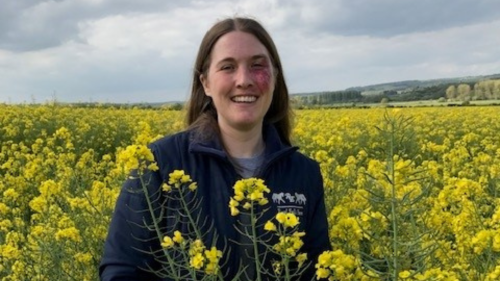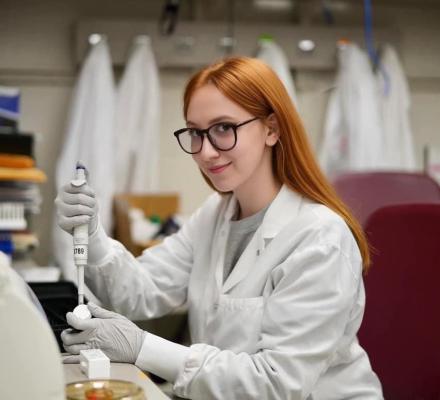
-
Understanding primary immunodeficiency (PI)

Understanding PI
The more you understand about primary immunodeficiency (PI), the better you can live with the disease or support others in your life with PI. Learn more about PI, including the various diagnoses and treatment options.
-
Living with PI
-
Addressing mental health
-
Explaining your diagnosis
- General care
- Get support
- For parents and guardians
-
Managing workplace issues
- Navigating insurance
-
Traveling safely

Living with PI
Living with primary immunodeficiency (PI) can be challenging, but you’re not alone—many people with PI lead full and active lives. With the right support and resources, you can, too.
-
Addressing mental health
-
Get involved

Get involved
Be a hero for those with PI. Change lives by promoting primary immunodeficiency (PI) awareness and taking action in your community through advocacy, donating, volunteering, or fundraising.
-
Advancing research and clinical care
-
Grants
-
IDF surveys
-
Participating in clinical trials
-
Diagnosing PI
-
Consulting immunologist
-
Clinician education

Advancing research and clinical care
Whether you’re a clinician, researcher, or an individual with primary immunodeficiency (PI), IDF has resources to help you advance the field. Get details on surveys, grants, and clinical trials.
-
Grants
When 4-year-old Sebastian Sancho received donor stem cells that provided him with a new immune system, a wave of gratitude washed over his father, Miguel Sancho. Years of struggle fighting chronic granulomatous disease, CGD, came down to one relatively simple step in a complicated medical procedure to end the disease.
“The moment we were in the pediatric bone marrow transplant unit at Duke and the actual transplant went in, it was one of the most transcendent and transformative experiences of my life because you have this entire arsenal of the state-of-the-art 21st-century medical capabilities, but ultimately the procedure itself is so simple the doctor doesn’t even need to be there,” said Miguel in an interview with ABC News.
“They’re infusing roughly 60 ccs of donor stem cells into the child’s body, and they do what they naturally do, and either it works or it doesn’t. Obviously, the doctors have done everything they can to maximize the chances of it working, but ultimately it’s really just up to the biology.
“You’re standing there - right at the border between what is known and what is predictable in human science and knowledge and the unknown, between basically certainty and uncertainty, between knowledge and faith. It’s extraordinarily humbling.”

Deeply impacted by the experience of navigating a years-long journey of Sebastian’s CGD diagnosis and treatment, Miguel decided to author “More Than You Can Handle: A Rare Disease, A Family in Crisis, and the Cutting-Edge Medicine That Cured the Incurable.”
The book explains Sebastian’s medical odyssey, the science behind his disease and treatment, the experiences of other families in the transplant unit, and the fissures that occurred in the Sancho family as Miguel and his wife Felicia Morton approached their son’s illness in two very different ways.
Born May 1, 2012, baby Sebastian struggled with unusual infections starting at about two months old. Fevers, abscesses, and other health problems led to months in and out of hospitals. A team of a dozen top medical specialists in New York City, where the family resided, couldn’t find a reason.
Finally, Felicia consulted with an immunologist to determine whether or not her son suffered from a primary immunodeficiency. After a series of tests, doctors confirmed her hunch – Sebastian had CGD.
The news devastated both Felicia and Miguel.
“This was not a problem that could be fixed. There was no pill you could take, there were no dietary changes you could make, especially with immune conditions,” said Miguel in a YouTube interview with a colleague.
“Then it really kind of hit – no, actually, the entire trajectory of our lives as we understood them was going to be radically different for the foreseeable future.”
The family struggled to keep Sebastian well with medications, but as the years wore on, it became clear that the only way his parents could improve the quality and quantity of their son’s life was through a bone marrow transplant.
They visited several transplant centers and landed on Duke University Hospital Pediatric Bone Marrow Transplant Unit as their son’s transplant provider.
In March 2016, the family – including Sebastian’s sister Lydia, older by four years – traveled to Duke for what they thought would be a consultation. On the way, Sebastian came down with a fever and vomiting. Should they turn back, they asked the Duke doctors? Absolutely not, they answered. If Sebastian had to be anywhere to recover from his sickness, Duke was the best place, they said.
Sebastian spent the first three months at Duke University Hospital recovering from infection and gaining enough strength to undergo the procedure. In June 2016, he received a lifesaving transplant and stayed in the transplant unit for two months as the donor stem cells replenished his immune system.
In August, the family moved to a living situation nearby the hospital to allow for daily follow-up appointments until Thanksgiving, when doctors approved Sebastian’s return home to New York.

The medical ordeal took its toll on the couple’s marriage.
While Felicia found solace in her faith and relied on it as a source of strength as she cared for Sebastian, Miguel traversed through a series of negative emotions like anger and stoicism. He buried himself in his work as a television producer.
“It was only when things were dangling by a string both domestically and medically that I needed to at least attempt to be a real grown-up and take on the responsibility not just for providing for the family materially or giving my kid his medicine but dealing with my own baggage, my own flaws, my own imperfections that a situation like this just makes you break open and confront with sober senses,” said Miguel in an interview with Motherhood Unstressed.
“If there’s a lesson there, to the degree that we have functioning immune systems for bodily pathogens, it really behooves one to try also to construct an immune system for the mind, an immune system that can give you some defense for the continuous pollutants and pathogens that can mess with your mind, because as we all know life keeps coming at you. You don’t just get to check out.”
In his book, Miguel also relays the stories of other families he met in the transplant unit at Duke, some of whom lost their children. The bonds he shared with those families, as well those with medical staff, proved to be a lifeline of support.
“Ultimately, what saved me and saved our family was just this overabundance of human kindness and generosity and brilliant application of cutting edge medical science,” said Miguel in the ABC interview.
The book also recounts Miguel’s efforts to “accept suffering” and describes how he turned to a series of resources – meditation, therapy, and exercise – to cope.
“I’m hoping that the book will give parents in similar situations not necessarily advice, but at least some understanding and self-compassion for the fact that when people are under this immense stress, you don’t automatically bring your A-game,” said Miguel in the ABC interview.

“It took me a long time to figure out how to perform and how to function in a way that I was able to execute my responsibilities as a father and as a husband.”
Today, Sebastian is a healthy 9-year-old with a strong immune system. Mom Felicia has established the Chronic Granulomatous Disease Association of America, a nonprofit advocacy group for CGD patients and carriers. For his part, Miguel continues his self-improvement.
“We’re all still works in progress, but with the right doses of optimism and compassion, there’s progress to be made,” said Miguel in the ABC interview.
Published by Avery Publishing, “More Than You Can Handle” is available through all major book outlets, including Amazon and Barnes and Noble. To learn more, click here.
Related resources
Sign up for updates from IDF
Receive news and helpful resources to your cell phone or inbox. You can change or cancel your subscription at any time.





The Immune Deficiency Foundation improves the diagnosis, treatment, and quality of life for every person affected by primary immunodeficiency.
We foster a community that is connected, engaged, and empowered through advocacy, education, and research.
Combined Charity Campaign | CFC# 66309




